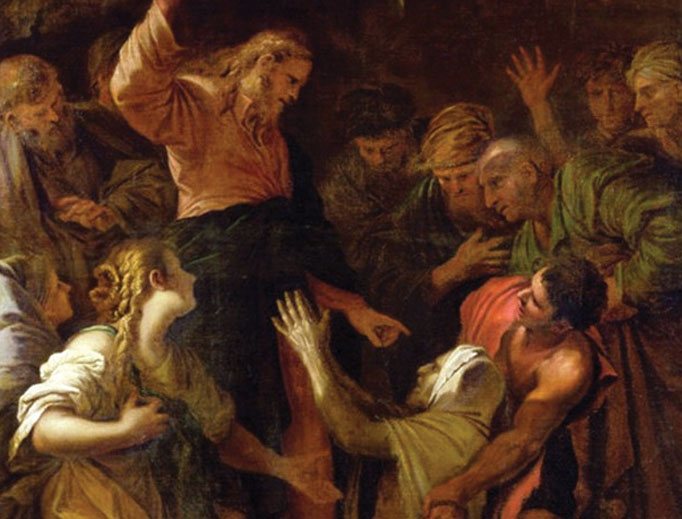I, the Leper
User’s Guide to Sunday, Feb. 11

Sunday, Feb. 11, is the Sixth Sunday in Ordinary Time (Year B). Mass Readings: Leviticus 13:1-2, 44-46; Psalm 32:1-2, 5, 11; 1 Corinthians 10:31–11:1; Mark 1:40-45.
The leper in today’s Gospel is not a man who lived 2,000 years ago. It is you and me.
The Gospel tells the story of how Jesus cures a leper and then tells him to show himself to the priest.
It happens in a beautiful exchange that shows the leper’s faith and Jesus’ love.
“If you wish, you can make me clean,” says the leper.
Jesus touches him and says: “I do will it. Be made clean.”
Then Jesus says: “But go, show yourself to the priest.”
Why does he need to show himself to the priest? The first reading explains: The priest is the one who declares him unclean. If he is clean, he can be reincorporated into the community. If unclean, he would have to stay separate from his family and friends, and shout, “Unclean! Unclean!” before him wherever he goes.
The reason for this, in primitive times, is clear: The diseased person would contaminate others.
It sounds harsh to us. We are used to the New Testament’s mercy and its inclusion of new people (Samaritans, sinners, Gentiles, etc.). The Old Testament’s rules seem almost cruel.
But they aren’t cruel — and if we are not careful, we can easily miss the wisdom of the Old Testament that the New Testament incorporates.
Consider today’s second reading. “Whether you eat or drink, or whatever you do, do everything for the glory of God,” says St. Paul. “Avoid giving offense, whether to the Jews or Greeks or the church of God.”
In other words, even we are asked to avoid contaminating the community by “ostracizing” certain parts of ourselves. Only for us, it isn’t external factors, or parts of our history, that make us “unclean.” It is our moral behavior right now.
Sin is the disease that ruins people. “Sin creates a proclivity to sin,” says the Catechism (1865). It is every bit as infectious, disfiguring and deadly as leprosy.
If I participate in the evils that haunt our time, I become a moral threat. If I indulge in lust, I draw others with me; if I am greedy, I perpetuate a cycle of greed; if I am envious or angry, my gossip and backbiting will spread; if I am proud, I make my family miserable; if I am gluttonous or slothful, I shut down sacrificial love for others.
That puts us in exactly the position of the leper. Jesus can make me clean if he wills it — and he does will it.
Once, in baptism and confession, he cures me of my moral leprosy, my job is to live accordingly as a full member of the Body of Christ.
Which brings us to another aspect of today’s Gospel: Jesus sends the healed leper to go speak to the priest and tell no one what happened to him. Instead, he tells the world. So should we.
Tom Hoopes is writer in
residence at Benedictine College in Atchison, Kansas.
- Keywords:
- healing
- sin
- tom hoopes
- user’s guide to sunday
- virtue
















